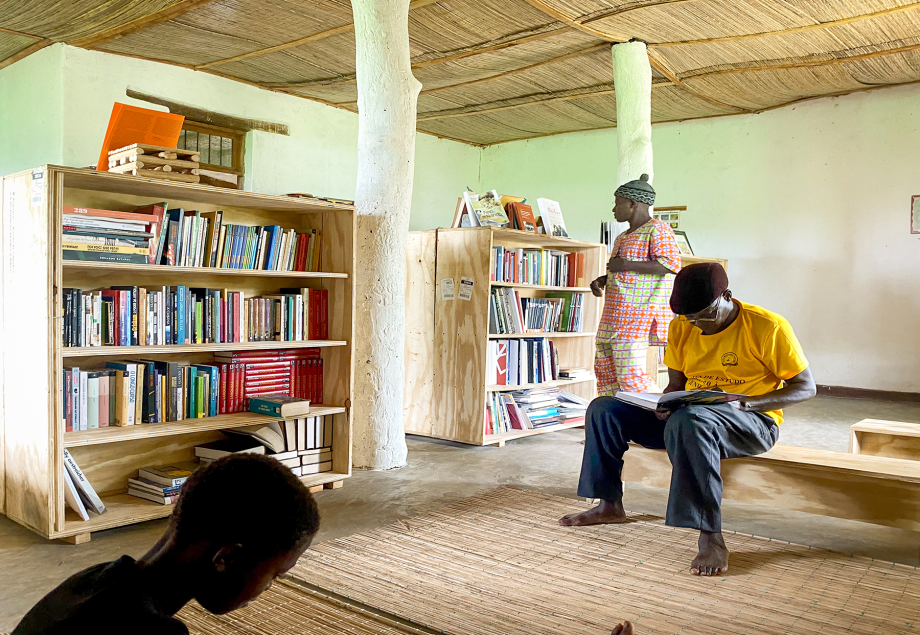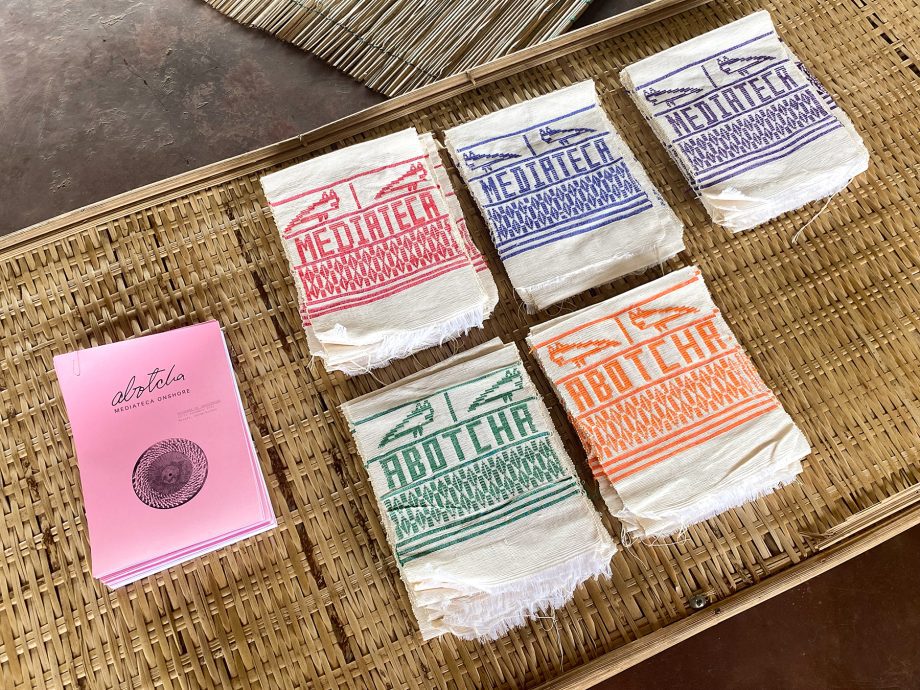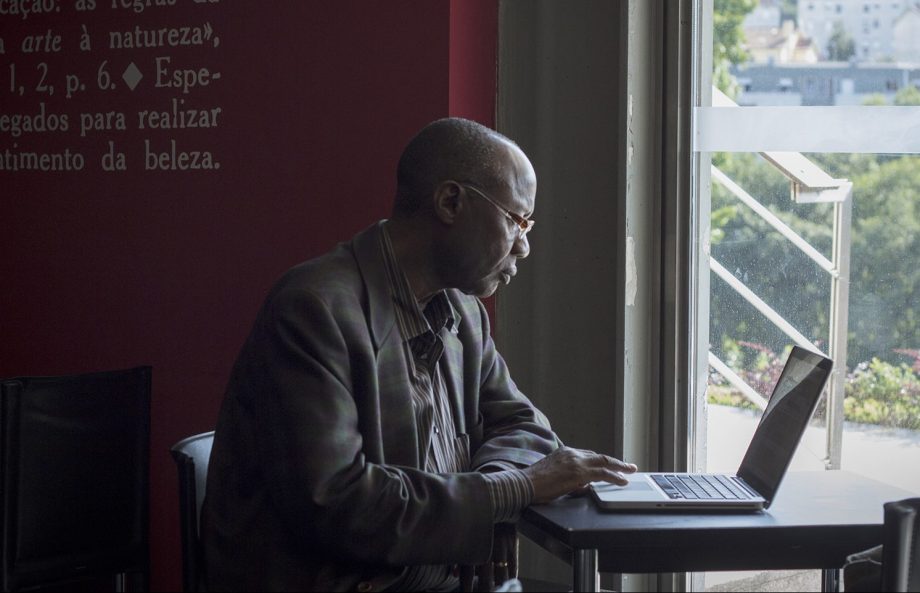Filipa César
Mediateca Onshore
Berlin, Germany · Cinema

Malafo community. Mediateca Onshore
2018 AFIELD Fellowship was awarded to Filipa César and Sana na N’Hada for their project Mediateca Onshore based in Malafo, Guinea-Bissau, a community run platform for sharing mundializing and traditional knowledges through practices in the fields of performing arts, archival practices, agroecology, moving image and digital media.
The Mediateca Onshore is an arts and culture platform in a socially and ecologically sensitive area in Guinea-Bissau. As a venue, it hosts archives, workshops, seminars, production and community gatherings. As a network, it acts as a hub for transferring local, South-South and mundializing knowledge through performing arts, archival practices, moving image and digital media. It articulates practices in the fields of art, agroecology, traditional knowledge and media as contribution to social, economical and environmental justice.
The village (tabanca) of Malafo is located about 90 km from Bissau, on the northern bank of the Geba Channel, in the Oio region (central Guinea-Bissau). The river basin is surrounded by a forest of savannahs and floodplains, a wetland that leads to the sea, making it an excellent place for developing agricultural and fishing activities. The area is immediately adjacent to the natural park ‘Parque Natural das Lagoas de Cufada’, run by the Institute for Biodiversity and Protected Areas (IBAP). The management of the Malafo School, its parents’ association ‘Associação de Pais e Encarregados de Educação’ (APEE) – No Ria Bolanha, as well as the local community all believe that in order to prevent that acquired knowledge gets quickly forgotten over time, it is not enough to learn how to read or write. They strive to develop their own literary and academic knowledge as well as general culture by setting-up a local public library. The vision of the Mediateca Onshore came from the encounter between Geba Filmes, the luta ca caba inda collective and the Malafo community. The building of the Mediateca Onshore was constructed between February and August 2021.
The overall Mediateca Onshore project is conceived as the implementation process for a media practice which is then meant to continue on a self-sustained, community-supported basis.

Mediateca Onshore. Malafo community.

Abotcha. Mediateca Onshore, Malafo community
Filipa César (1975) is an artist and filmmaker interested in expanded possibilities of moving image practices. Since 2011, she has been researching and getting affected by the imaginary of the militant cinema of Guinea Bissau.
César has been showing her work regularly in film festivals such as Berlinale, Rotterdam, Curtas, DocLisboa and Oberhausen and in contemporary art venues such as SAAVY (Berlin), Khiasma (Paris), Tensta konsthall, e-flux, Mumok, MoMA, Harvard Film Museum.
For the past seven years, César and N’Hada have been working closely to research and reactivate the imaginary of the Guinean liberation movement through a collective, experimental archival project departing from the remains of the national militant cinema. Their collaborative project, “Luta ca caba inda – The struggle is not over yet”, involving many other participants, unfolded in various events, film productions, conferences and publications. It led to a 2013 exhibition at the Musée du Jeu de Paume in Paris and to the internationally widely shown film Spell Reel.

Filipa César AFIELD Fellow 2018
Sana na N’Hada (1950) was born in Enxale, Guinea-Bissau. In 1967, together with three other Guinean students, he was given the opportunity to learn film-making at the Cuban film institute ICAIC. Upon their return in 1972, the group started a regular film praxis from which emerged the National Film Institute INCA, founded in the aftermath of Independence in the mid-1970s. Sana na N’Hada co-authored most films and footages preserved today in the INCA archive, which became the reference point for the research project Luta ca caba inda, which N’Hada initiated together with Filipa César, Flora Gomes and Suleimane Biai in 2012, which lead to the creation of the Mediateca Onshore.
In a cinematic career spanning some four plus decades Sana na N’Hada has borne witness to the best and the worst times in Guinea-Bissau. He joined Amìlcar Cabral’s revolutionary army in the heady days of the war for independence. In the restive years following self-rule he set about making evocative films that captured and challenged the prevailing zeitgeist.
N’Hada’s filmography includes the documentaries O Regresso de Amílcar Cabral (1976), Les Jours d’Ancono (1978) and Fanado (1984), the fiction films Xime (1994), selected for the Cannes Film Festival, Bissau d’Isabel (2005), and Kadjike (2012). Sana na N’Hada has worked with many filmmakers, including Anita Fernandez, Chris Marker, Sarah Maldoror, Joop va Wijk, Leyla Assaf-Tengroth and regularly with Flora Gomes.

Sana na N’Hada AFIELD Fellow 2018
